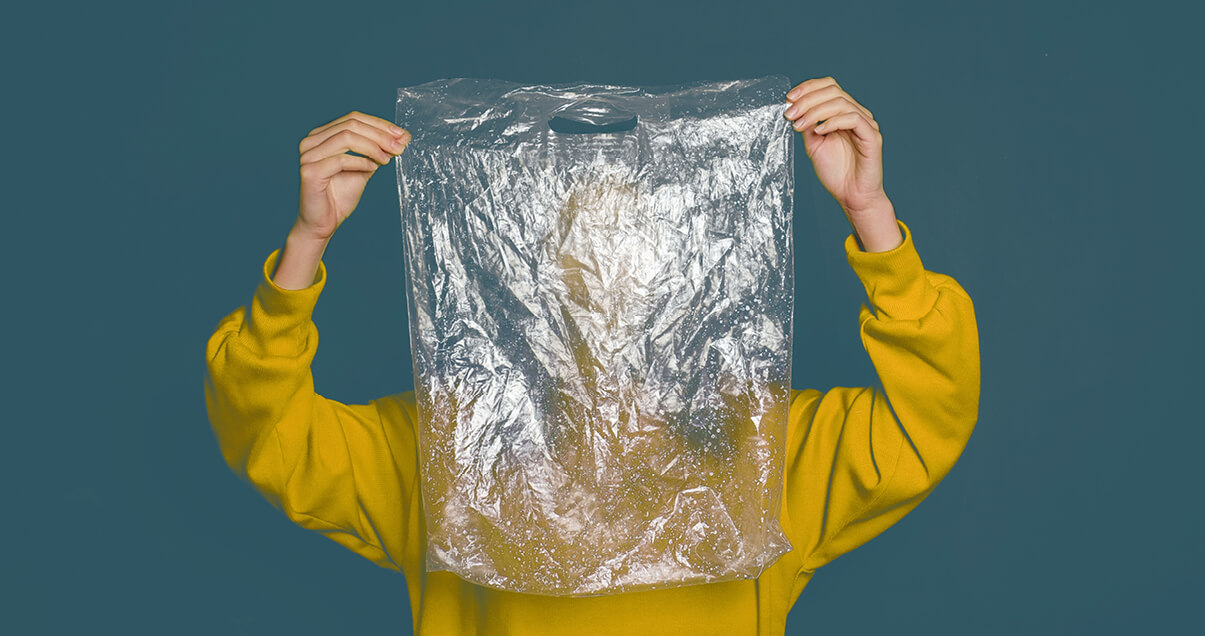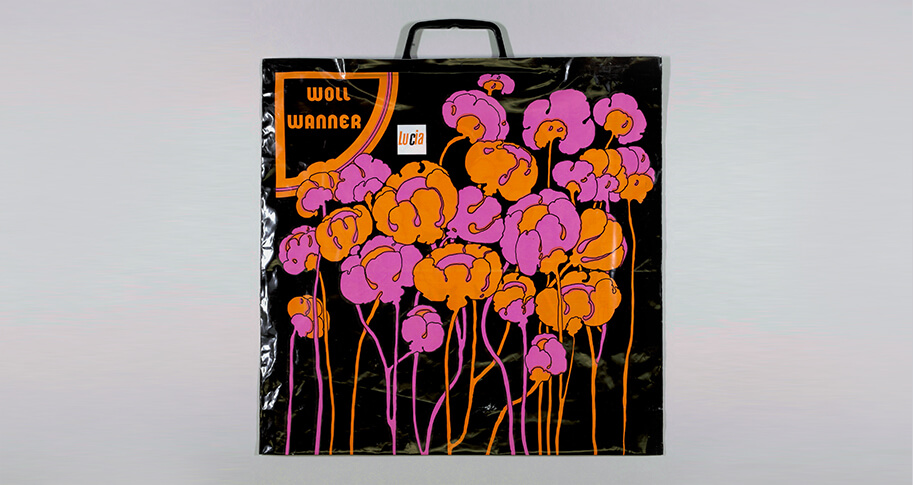Please do not recycle

There is a square hanging on the wall. From the bright yellow that gradually changes to orange, shade by shade, to the blue in the centre, it is an impressive piece of geometric, abstract design. Bauhaus, clearly. The artist: Günter Fruhtrunk. The next exhibit along is an item of soft-edge design with a very 1970s look. The brown and yellow pattern seems almost hypnotically gaudy. A few of the 50,000 collector’s items are so beautiful that you really could hang them on your own wall.
We are talking about plastic bags. Yes, that’s right: PLASTIC bags. The symbol of the throw-away society, enemy of the oceans and terror of our environment now has an entire exhibition devoted to it – and it even looks good. But now, the exhibition – entitled Adieu Plastiktüte! (Goodbye, Plastic Bag!) – at the Museum für Alltagskultur (Museum of Everyday Life) in Waldenbuch, Germany, is bidding farewell to the bag. After all, handing out plastic bags has been prohibited at all checkouts in Germany since January 2020. This was the result of a law passed by the German Federal Government. Only remaining stock is being sold off now. Then, all that will be available in the supermarkets are the thin plastic bags for fruit and vegetables. This is because the German Federal Government fears that a ban on these would result in higher plastic consumption. It could lead manufacturers to wrap more food in plastic packaging as standard.
Buy, pack, throw away. In Germany, consumers go through 1.6 billion plastic bags like these here every year. This equates to more than 3,000 every minute, even though, on average, they are used for no longer than 20 minutes. If they were strung together, 1.6 billion bags would reach around the equator 20 times. It takes more than 200 million liters of petroleum to make 1.6 billion bags. And although you might find it hard to believe based on these figures, their durability is what ultimately sealed their fate. After all, it takes a plastic bag more than 100 years to biodegrade in the natural environment.

And that is a problem. Scientists believe that in 2050, there will be more plastic waste swimming in our seas than fish. The recycling rate is simply too low. The Federal Environment Agency’s final report on the occurrence and recovery of packaging waste in Germany from 2017 shows that only half of all plastic waste is recycled.
But the plastic bag was not always a bogeyman. For no fewer than 60 years, from 1960 to 2020, it was our faithful companion in many situations. A worry-free all-rounder to take with you on a stroll through the shopping malls. It was also often a status symbol. Apple, Lacoste, Levi’s – they all printed their own plastic bag designs and thereby gave the people carrying them the chance to identify with the brand and contents and to show off.
Trash or even a cultural icon? This question remains. However, one thing is clear: the ban means that a piece of contemporary history is now a thing of the past. Like the Walkman and the phone booth, the plastic bag will soon exist only in our memories. “Good!”, cries the environment. “Consign the plastic bag to the garbage heap of history. And please do not recycle it.”

